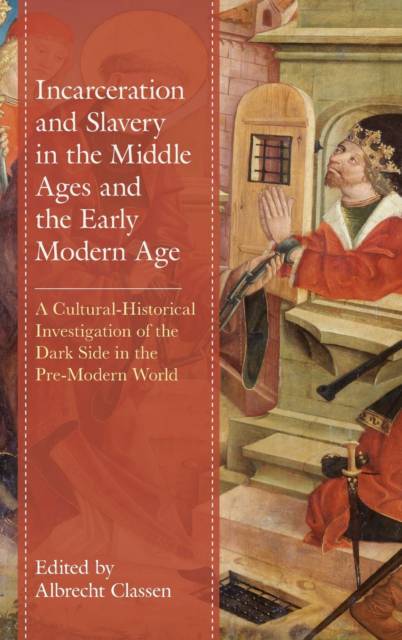
Bedankt voor het vertrouwen het afgelopen jaar! Om jou te bedanken bieden we GRATIS verzending (in België) aan op alles gedurende de hele maand januari.
- Afhalen na 1 uur in een winkel met voorraad
- In januari gratis thuislevering in België
- Ruim aanbod met 7 miljoen producten
Bedankt voor het vertrouwen het afgelopen jaar! Om jou te bedanken bieden we GRATIS verzending (in België) aan op alles gedurende de hele maand januari.
- Afhalen na 1 uur in een winkel met voorraad
- In januari gratis thuislevering in België
- Ruim aanbod met 7 miljoen producten
Zoeken
Incarceration and Slavery in the Middle Ages and the Early Modern Age
A Cultural-Historical Investigation of the Dark Side in the Pre-Modern World
€ 262,95
+ 525 punten
Omschrijving
In this volume, scholars of pre-modern Europe and the Arab world examine the issues of incarceration and slavery. The emphasis rests on religious, literary, philosophical, and historical narratives, buttressed by art-historical evidence, all of which demonstrates the true importance of these painful problems.
Specificaties
Betrokkenen
- Uitgeverij:
Inhoud
- Aantal bladzijden:
- 528
- Taal:
- Engels
- Reeks:
Eigenschappen
- Productcode (EAN):
- 9781793648280
- Verschijningsdatum:
- 19/10/2021
- Uitvoering:
- Hardcover
- Formaat:
- Genaaid
- Afmetingen:
- 152 mm x 229 mm
- Gewicht:
- 870 g

Alleen bij Standaard Boekhandel
+ 525 punten op je klantenkaart van Standaard Boekhandel
Beoordelingen
We publiceren alleen reviews die voldoen aan de voorwaarden voor reviews. Bekijk onze voorwaarden voor reviews.








